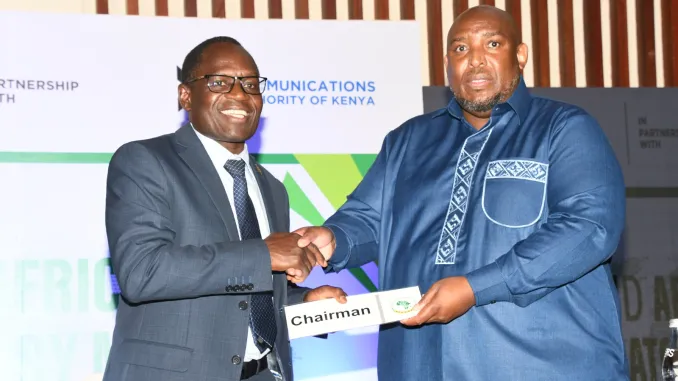Kenya’s Principal Secretary for ICT and the Digital Economy, Eng. John Tanui Isaboke, has been elected chairperson of the African group preparing for the upcoming World Radiocommunication Conference (WRC) under the International Telecommunication Union (ITU).
The election marks a significant milestone for Kenya’s growing influence in shaping global digital and communication policies.
The World Radiocommunication Conference, which is convened every three to four years by the ITU, plays a pivotal role in reviewing and revising the global regulations governing the use of radio-frequency spectrum and satellite orbits.
These resources are critical for mobile broadband, broadcasting, aviation, maritime, space services, and emerging technologies such as 5G and satellite internet.
As chair of the African Preparatory Meeting (APM), Isaboke will coordinate regional input and consensus-building among African nations ahead of the global conference.
His mandate includes leading technical discussions, aligning policy positions, and representing Africa’s strategic interests in spectrum allocation and management. The position is not only a recognition of Kenya’s policy leadership but also a nod to the country’s robust digital transformation agenda.
Africa faces unique challenges and opportunities in the digital space, including limited spectrum availability, high demand for mobile broadband and growing interest in satellite connectivity to bridge digital divides.
Under Isaboke’s leadership, the continent is expected to adopt unified positions that reflect its developmental priorities, such as expanding internet access in rural areas, safeguarding broadcasting services, and fostering innovation through emerging wireless technologies.
Industry stakeholders have welcomed his election, viewing it as a step toward more equitable global representation in key decision-making processes.
Kenya, which has invested heavily in ICT infrastructure and innovation, is likely to use the platform to advocate for fair spectrum distribution and policies that promote inclusive digital growth across the continent.
Isaboke’s chairmanship comes at a crucial time when the global telecommunications landscape is undergoing rapid evolution, and the outcomes of WRC will influence how technologies are deployed for years to come.
The next World Radiocommunication Conference is scheduled to take place later this year, and preparations are already underway across member states.
Written By Ian Maleve



















